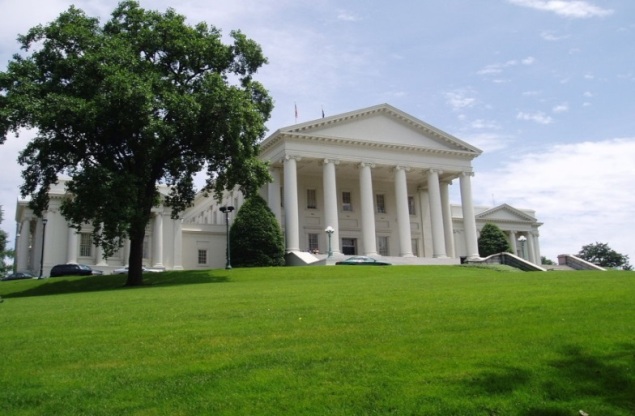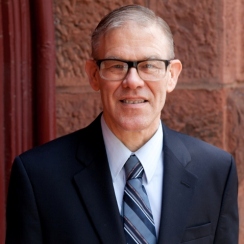The conflict between religious liberty and homosexual liberation has come to the Old Dominion, from whence the Moral Majority was launched, in a stronger form than would have been imaginable even a few years ago. This type of situation was noted by legal scholar Robert George at the time of the same-sex marriage decision. As Christians have come to realize, an original plea for legal toleration, with assurances that no one would have their personal freedom imposed on, has been replaced by a demand that acceptance of homosexually be legally required throughout society. Still, there have remained areas that seemed to be untouched in the private world, where Biblical morality could be maintained. This in particular included churches, families, and to some extent, secondary religious institutions, such as schools and charities. But that is no longer the case in Virginia.
Some court cases, such as the Masterpiece Cakeshop case in America and the Asher’s Bakery case in Great Britain give cause for hope that the wider culture may be grasping the point that the traditional conscience regarding sexual matters is important to part of the population. It must be respected, however pained anyone is. But on the other side of the conflict, we now see what are effectively demands that opposition homosexuality and transgenderism, and more generally the sexual revolution as a whole, be made completely illegal.
It is noticeable particularly, as an earlier article indicated, in the attempt to expand the meaning of “conversion therapy” (i.e., therapy to re-orient a patient from unwanted same-sex attraction or transgender belief) from counseling to any expressed opposition to homosexuality and transgenderism, wherever found in society. This total prohibition of opposition to LGBT inclination and behavior is the practical effect of legislation proposed in California, Canada, and Britain. Virginia began this process by enacting a law against “conversion therapy” for minors in March (with the usual one-sided provision that therapy to question one’s biological sex is allowed, but not to affirm it, which is arguably viewpoint discrimination).
So far, no national sexual orientation and gender identity (SOGI) law has been enacted, although a Biden or other future Democratic administration would immediately do so, provided that it has a Democratic Congress. Many state and local SOGI laws have been enacted in liberal to moderate jurisdictions, and these, at least until recently, had fairly generous religious exemptions for religious organizations (which the proposed national Equality Act does not have).
But an ominous example of the increasing intolerance of LGBT liberation was enacted into law in the spring by Virginia’s Democratic governor and General Assembly. Passed at the height of the coronavirus lockdown, it took effect on July 1. The Virginia Values Act prohibits discrimination against sexual orientation and gender identity not only in businesses, but in all establishments that are “in fact” open to the public. This reasonably includes churches, since most are open for public worship or to provide social services to the public. The effect is sweeping throughout society. All rest rooms must be open to both sexes, no other sex specific areas in public are allowed, athletics for girls must be open to boys, no one can decline to provide goods and services that involve complicity in homosexuality and transgenderism, etc.
A recent article by John Stonestreet and Roberto Rivera of the Colson Center for Christian Worldview pointed out that the act has not yet been enforced in a single case. But the Alliance Defending Freedom legal service organization has filed a pre-enforcement challenge to the law, on the grounds that it violates the First Amendment to the U.S. Constitution, Virginia’s state constitution, and Virginia’s Religious Freedom Restoration Act (state RFRA).
Considered from a simply secular viewpoint, the VVA suffers the basic problem of all SOGI laws. It establishes categories based on behavior and inclination, which necessarily do not pick out any definite group of people. Anyone can engage in homosexual or transgender behavior, or claim to have that inclination. Since “freedom” and “equality” are held to be the principles behind civil rights law, and it is particular personal behaviors which are held to be free and equal, applying freedom and equality in a consistent way would logically mandate anarchy, since any behavior or inclination could be taken as a basis for an identity demanding protection. It is only by sensibility that sexual orientation and gender identity can be singled out as protected by law. In effect, while presented as protecting a particular class of people, SOGI laws instead mandate acceptance of homosexual and transgender behavior throughout society. This is incompatible with a free society in which people live by their consciences, but it is the true purpose of these laws.
Additionally, the inclusion of “gender identity” as a protected category, separating sex from sexual anatomy, destroys the meaning of sex. Logically one could claim any affinity, such as a liking for alcohol, drugs, theft (kleptomaniacs protected?) or homicide as one’s “gender identity.”
SOGI laws could be acceptable from the standpoint of religious freedom if they did not require complicity in homosexual behavior, but they are interpreted to conflate people with their behavior, and so declining complicity in homosexual behavior is held to be illegal “discrimination against homosexuals.”
The VVA has a bizarre religious exemption. Religious schools controlled by a particular denomination or church are not bound by the law, but they must not discriminate against homosexuality or transgenderism in their requirements for church membership, (or membership in other primary religious group). It is ludicrous to think that a church which does not prohibit homosexual behavior by its membership would want to prohibit or restrict homosexual behavior in any school it operated. This exemption may have been included in a nod to religious liberty without really making any concession at all. But it may indicate something more sinister.
The VVA’s meager protection of religious institutions appears to be attempting to ensure that religious schools are not able to prohibit homosexuality or transgenderism by faculty and other employees by requiring that employees be members of a church or other controlling religious organization. If the church prohibits homosexuality in its members, and only members can be employed at the school, then homosexuality is effectively prohibited at the school. As noted above, it is difficult to imagine a church which accepts homosexuality prohibiting it at a school it controls. But the VVA also may be making a shot over the bow at something else. That is the right of religious groups to prohibit homosexuality or transgenderism among their membership. This is a direct attack on religious freedom, affording churches that accept homosexuality rights that those which oppose it do not have. Religious believers are being denied their rights if they cannot have organizations based on their own religious standards. Their religious freedom means nothing if they can be set aside when someone is pained.
This appears to be a new line of LGBT attack against religious freedom, i.e., to attack the right of religious organizations to set their own standards and membership. It was attacked by the U.N. Special Rapporteur on Religious Belief, who maintained earlier this year that LGBT identifying persons have the right to join any religious organization without discrimination against their sexual behavior, and that women have the right to be part of any religious organization on the basis of equality, and in particular without prohibition against abortion.
Stonestreet and Rivera also note that the Virginia SOGI law has a further religious exemption. The new law does not cover instructors in a curriculum “directed toward the propagation of a particular religion.” They speculate that this means that protection against enforcement of the SOGI law is only for positions involving the teaching of religious doctrine. Positions involving general education, such as math or science teachers at a religious school would not be covered. This, they indicate, directly contradicts the Supreme Court’s recent ruling in Our Lady of Guadalupe School vs. Morrissey-Berru, which entails that “religious organizations have the freedom to set their own internal policies and codes of conduct about life, marriage, and sexuality.” The Virginia law may be intended as a challenge to that decision, but if so, clearly contradicts the free exercise of religion of these voluntary associations guaranteed by the First Amendment
A photographer working in Virginia, Chris Herring, has sued the state over the act, arguing, as religious objectors to SOGI laws normally do, that he is perfectly willing to serve LGBT identifying people, but not to provide expressive content that supports same-sex marriage. It has also been noted that the SOGI law threatens small businesses, since businesses are required to pay attorney’s fees if they lose, but cannot recover attorney’s fees if they win. One solution is to settle with a plaintiff out of court, but this too is costly. Additionally, the VVA can be expected to create an anti-business climate due to unlimited compensatory and punitive damages for any type of antidiscrimination lawsuit, whether LGBT related or not. There appears to be conflict of interest as well, as the law authorizes the state attorney general to sue state agencies for discrimination, when he or she is also authorized to represent them.
The law also threatens, as SOGI laws now do, women’s sports, since men and boys can now participate in them with the claim to be female (or even with simply the claim that sex specific sports are sex discrimination, as the reasoning of the Bostock decision, if not its text, would allow).
It is sad to think that a state which historically is associated with American liberty, and particularly with freedom of religion, and which in the historic Virginia Statute for Religious Freedom, declared that no one should “suffer on account of his religious opinions or belief,” is now banishing religious freedom from the public square where sexual morality is concerned, a key component of most religions. It is even banished from the private world where private venues are open to the public, even in the case of churches. It is to be hoped that federal courts will overrule its blatantly unconstitutional provisions, and the citizens of Virginia will insist on laws that respect their religious belief and conscience.
No comments yet





